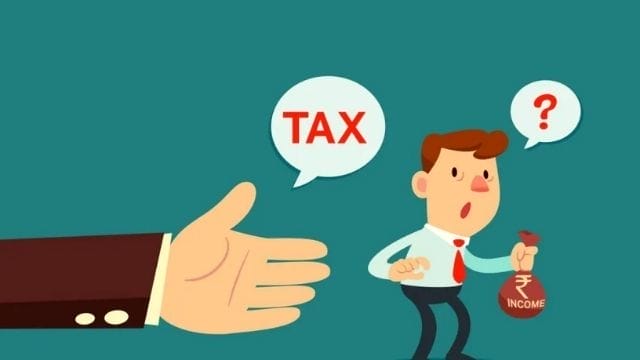Three Reasons Why It Is Critical for Every Citizen to Pay Their Fair Share of Taxes?
“Why should I pay income tax?” is a question that may have occurred to you at least once when reviewing your pay stub or preparing tax returns. Because taxes may take up a significant amount of your income, many individuals assume that taxes are nothing but a nuisance.
Is this, however, the case? Not at all. Let’s take a look at why income tax is so important in India.
- Helps Build the Nation
The expense of governing a country, particularly one as huge and populous as ours, is enormous. The government is able to carry out civic activities thanks to the taxes we pay. In other words, the government would be unable to administer the country if taxes were not collected.
One of the most important sources of revenue for the Indian government is income tax. If individuals begin to view income tax as a burden and refuse to pay it, it will have a direct influence on our nation’s progress as well as societal breakdown.
- Welfare Schemes
In India, there are now around 50 union government initiatives. The government has developed many plans to assist all areas of society, including job programmes, house loan subsidies, cooking gas concessions, and pension schemes.
Read More: What Is a Security in Finance? Examples, Frequently Asked Questions
These programmes help millions of Indians and cost billions of rupees to implement. By paying income taxes, you contribute to the success of these programmes while also allowing the government to work on new assistance schemes and initiatives.
- Improved Healthcare And Education
A considerable portion of the tax revenue is used to improve healthcare in the country. There are government hospitals that provide medical care for free or at a low cost. The level of care offered by government hospitals has increased dramatically over the years, and this has only occurred as a result of people paying taxes.

There are other government schools that charge a little price. Moreover, every year, tens of thousands of crores are spent on defence and infrastructure development. All of this contributes to the countries overall strength and prosperity.
Contribute to the Nation’s Development by Paying Income Tax. Rather than assuming that income tax is a hardship, try to comprehend its significance, and you will recognise the different roles that your money plays in the country’s progress.
Be a responsible citizen and pay your income taxes on time, since it is only via tax payments that our country will be able to stay up with other developed countries and continue to prosper.
Why Do We Pay Taxes to the Government?
Around the middle of spring, you’ll start to hear the sighs and groans of working folks seeking tax assistance and expressing their dissatisfaction with income taxes. Sure, we all know it’s the law, but do we truly understand why we’re handing up a significant portion of our earnings to the government? Understanding the genuine purpose of taxes is vital for all taxpayers, regardless of whether we approve or believe it is completely insane. What is the purpose of paying taxes? There are several explanations for this. Taxes help keep our country functioning by supporting retirement benefits and paying government employees. Continue reading to learn more about why we are required to pay taxes to the government.
Why We Pay Taxes: An Overview
What is the purpose of paying taxes? The most basic reason is that tax laws are implemented by municipal, state, and federal governments, and taxpayers’ money pays for a variety of government services. Legislators, executives (those in charge of enforcing laws), judges (those in charge of deciphering laws), and others make up these governments. Tax revenue is used to pay for government employees as well as public initiatives such as education and infrastructure such as roads. Taxes are a legal necessity, but they are also seen as a civic duty. If you fail to pay your taxes, the governing body in charge of them (the Internal Revenue Service, or IRS) will order you to do so, or you may suffer consequences such as heavy fines or jail time. Taxes come in a variety of shapes and sizes.
Read More: Information About the Stock Market for Clvr Stock
The amount you pay in income tax is the amount you pay when you work. A percentage of your earnings is withheld from your paycheck and paid to the government, depending on your income. A sales tax is usually applied to the price of things when you buy them at a store. The amount of sales tax imposed at the store is a proportion of the cost of the item. Property ownership also necessitates the payment of property taxes based on the assessed value of the property.

Types of Taxes: Federal, State and Local
There are three different forms of taxes: federal, state, and local. Why must we pay taxes to several levels of government? Each level of government utilises these taxes in a different way to pay its activities. We’ll go through each level of government and how they collect taxes in the sections below.
Federal
On February 3rd, 1903, the 16th Amendment was ratified, giving Congress the ability to levy a federal income tax. Tax collection, on the other hand, is not a new notion. Ancient civilizations such as the Romans and Egyptians have been collecting taxes for thousands of years. Taxes are the greatest source of revenue for the US government today, and they are used to pay social services, national security, and other things. According to the Tax Policy Center, the US government collected around $3.3 trillion in taxes in fiscal year 2017, with:
- 9 percent of those taxes coming from individual income taxes.
- 9 percent coming from corporate income taxes.
- 35 percent coming from social insurance (payroll) taxes.
- 6 percent coming from other sources, such as estate taxes, tariffs, and earnings from the Federal Reserve’s holdings, and.
- 5 percent coming from excise taxes.
State
States are also responsible for collecting their own taxes. Some of the reasons we pay state taxes are to finance programmes and projects like schools and highways. The Urban-Brookings Tax Policy Center discovered the following breakdown for state government general revenue in fiscal year 2016:
- 18 percent of revenue came from individual income taxes
- 8 percent of revenue came from other taxes
- 4 percent of revenue came from corporate income taxes.
- 4 percent of revenue came from intergovernmental transfers
- 3 percent of revenue came from charges and miscellaneous sources
- 1 percent of revenue came from sales taxes
Read More: A Beginner’s Guide to What is Decentralized Finance (DeFi)
Overall, states gathered $1.9 trillion in general revenue in fiscal year 2016, with $923 billion coming from sales, income, and other taxes. Funds transmitted from other governments, usually the federal government, are referred to as intergovernmental transfers. Tuition paid to public state universities and colleges, toll tolls for bridges and roads, and money paid to public hospitals are common charges and miscellaneous sources. According to the Tax Policy Center, other taxes include money from inheritance taxes, licence fees, and severance taxes. Select retail commodities, including as tobacco, alcohol, and fuel, are also subject to state taxes.
Local
Finally, municipal governments, such as the town, city, county, township, or school district where you reside, collect their own taxes. Property, sales, and income taxes account for the majority of local government revenue, whereas personal income taxes account for the majority of federal revenue. The Urban-Brookings Tax Policy Center compiled the following breakdown of local government general revenue in fiscal year 2016:

- 8 percent of revenue comes from property taxes
- 6 percent of revenue comes from charges and miscellaneous sources
- 4 percent of revenue comes from other taxes
- 2 percent of revenue comes from sales taxes
- 1 percent of revenue comes from intergovernmental transfers
- 0 percent of revenue comes from income taxes
Local governments received more than $1.6 trillion in general revenue in 2016, including $677 billion from sales, individual income, property, and other taxes. Parking metre fees, water fees, sewage fees, and other fees were collected by local governments in addition to property taxes, sales taxes, and intergovernmental payments from the federal and state governments.
Key Takeaways
It might be aggravating to have significant quantities of money deducted from your paycheck. Knowing why we pay taxes to the government, on the other hand, can help you comprehend where your money goes and who has the last say. As a citizen of a democracy, you have the right to vote and make changes, including how and where your tax dollars are spent. Overall, your tax dollars benefit you by providing you with safe roads to travel on, quality schools for your children, and national security to protect you and your family. When tax season arrives, you may seek the advice of tax preparation specialists, such as those at Community Tax, who can assist you in completing an appropriate tax return so that you can get the most out of your money. Community Tax is ready to assist you with tax credits and deductions, as well as getting out of IRS debt.



Comments are closed.